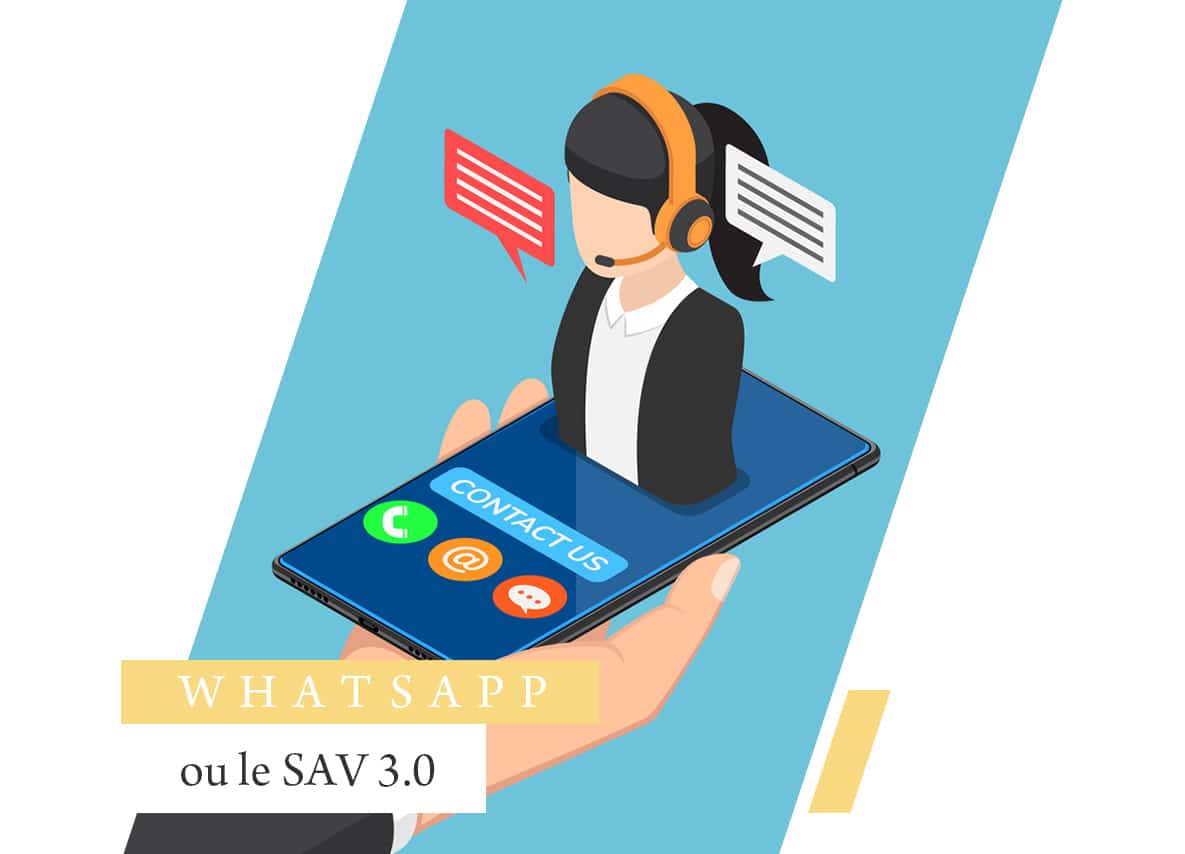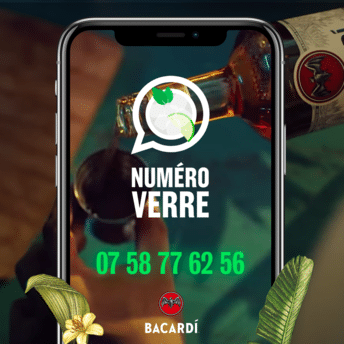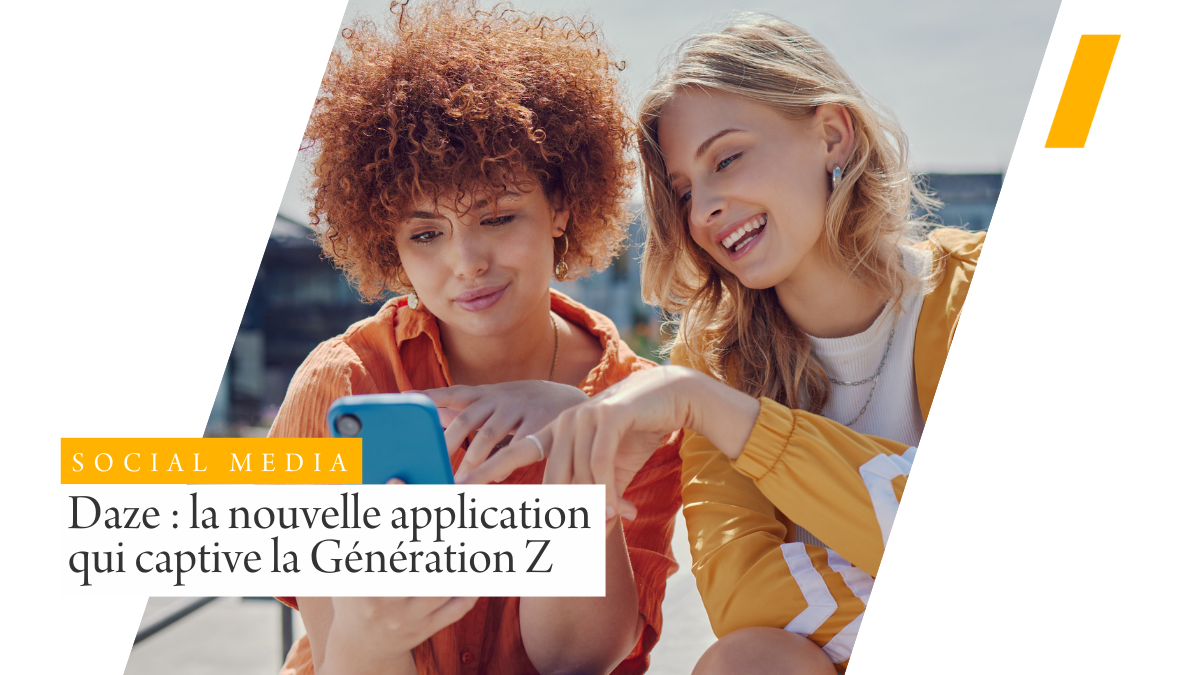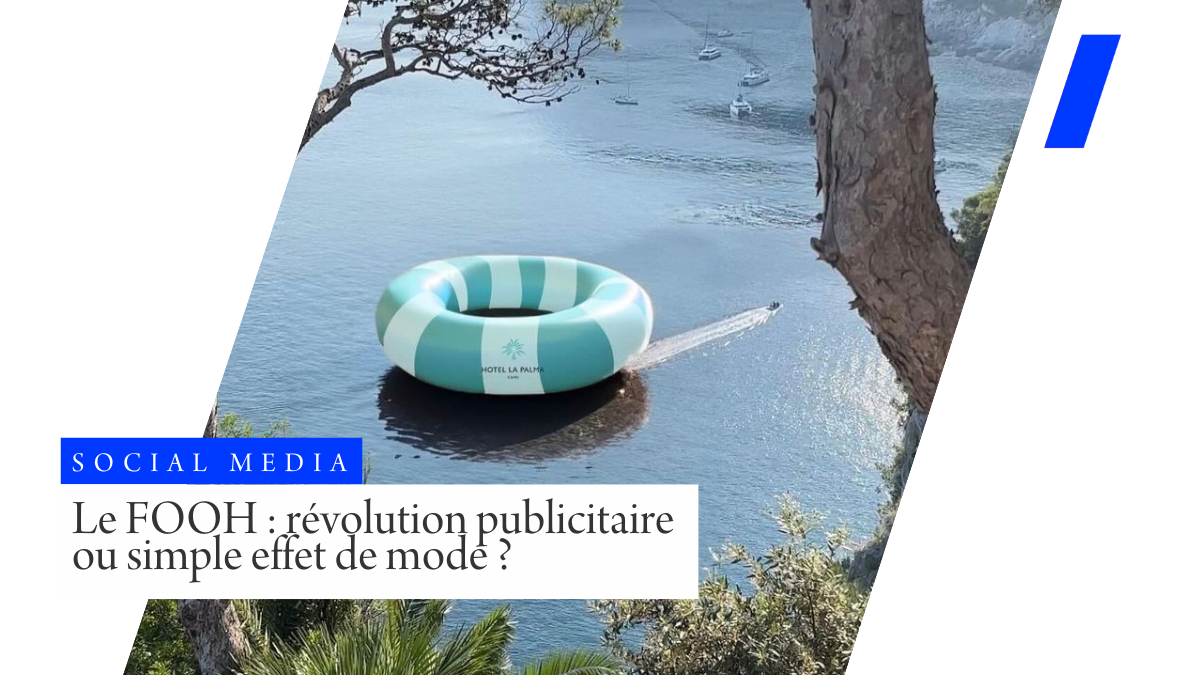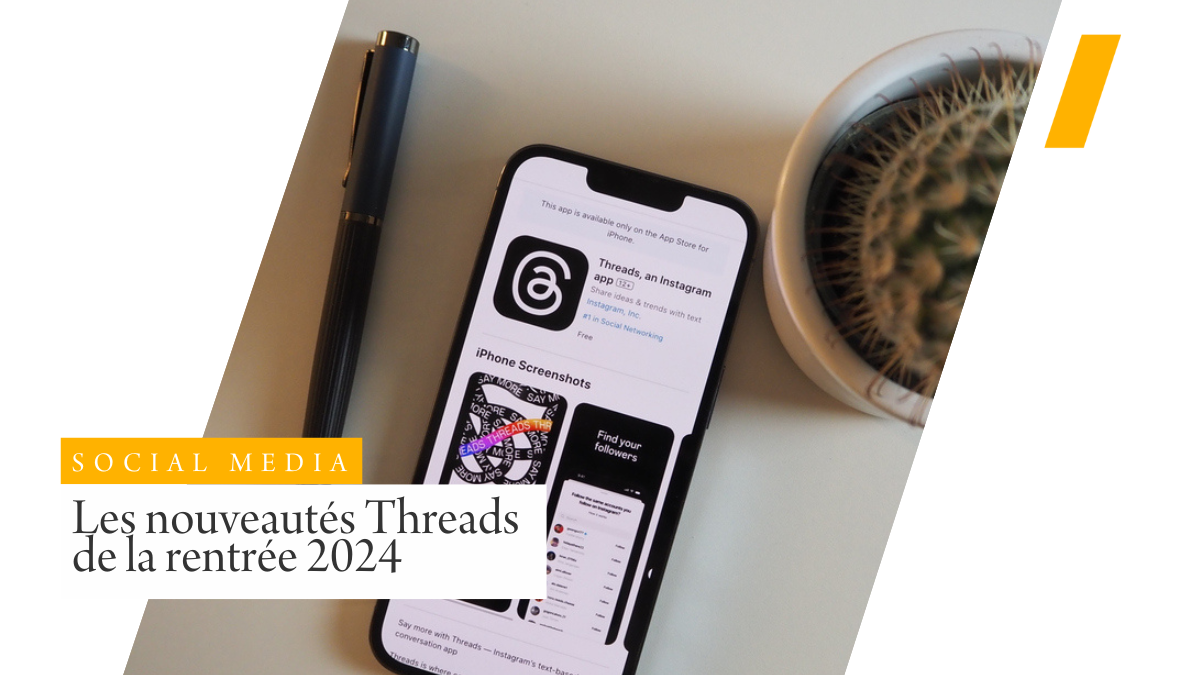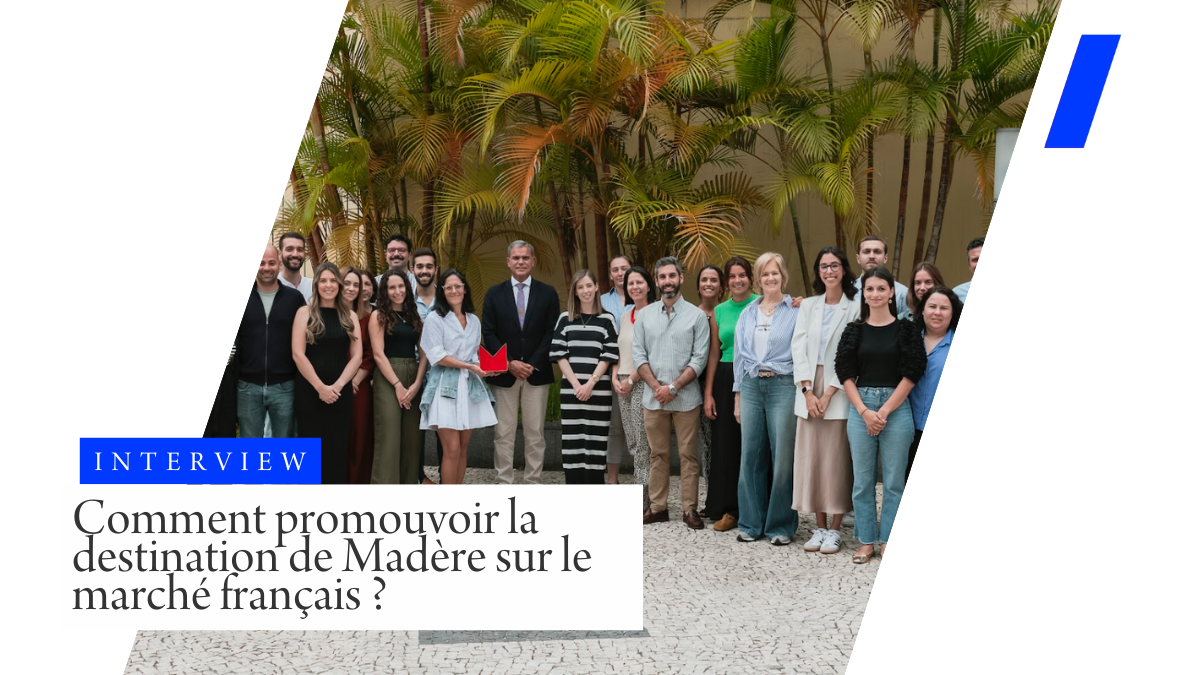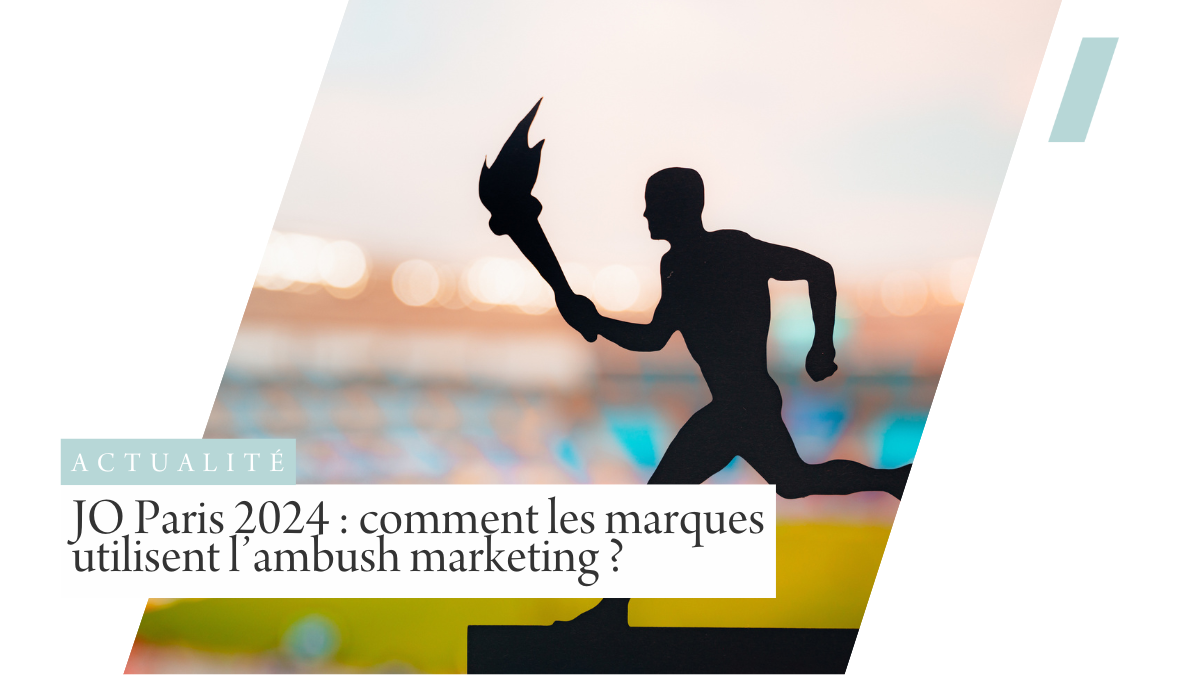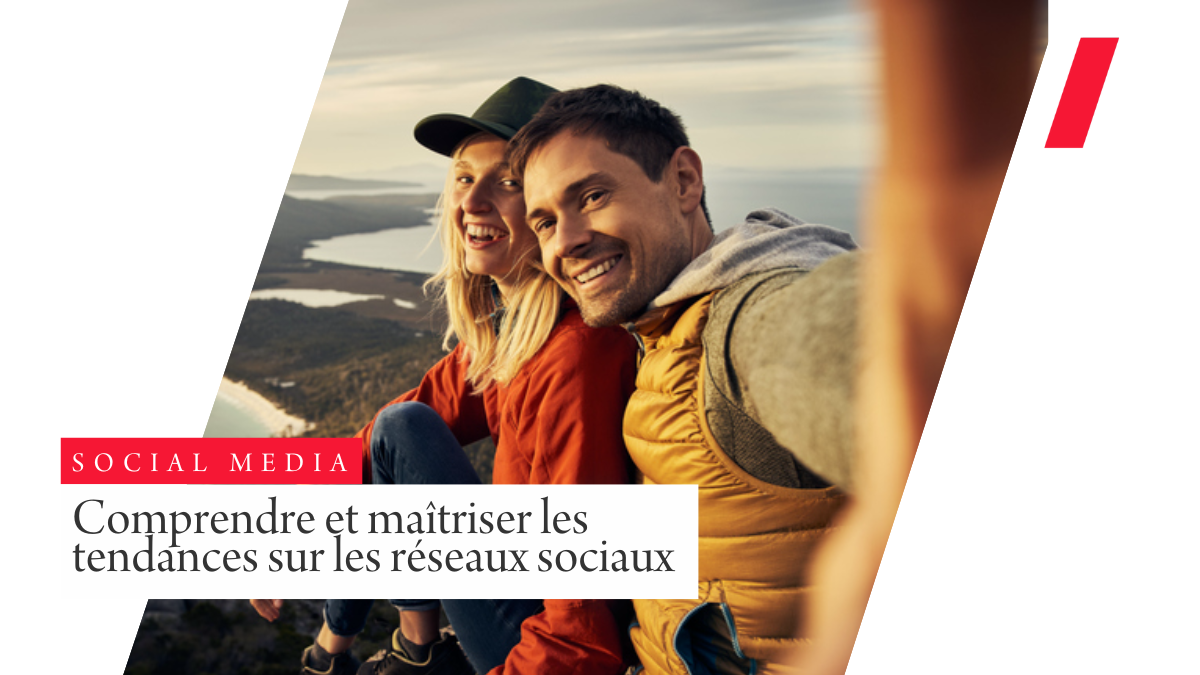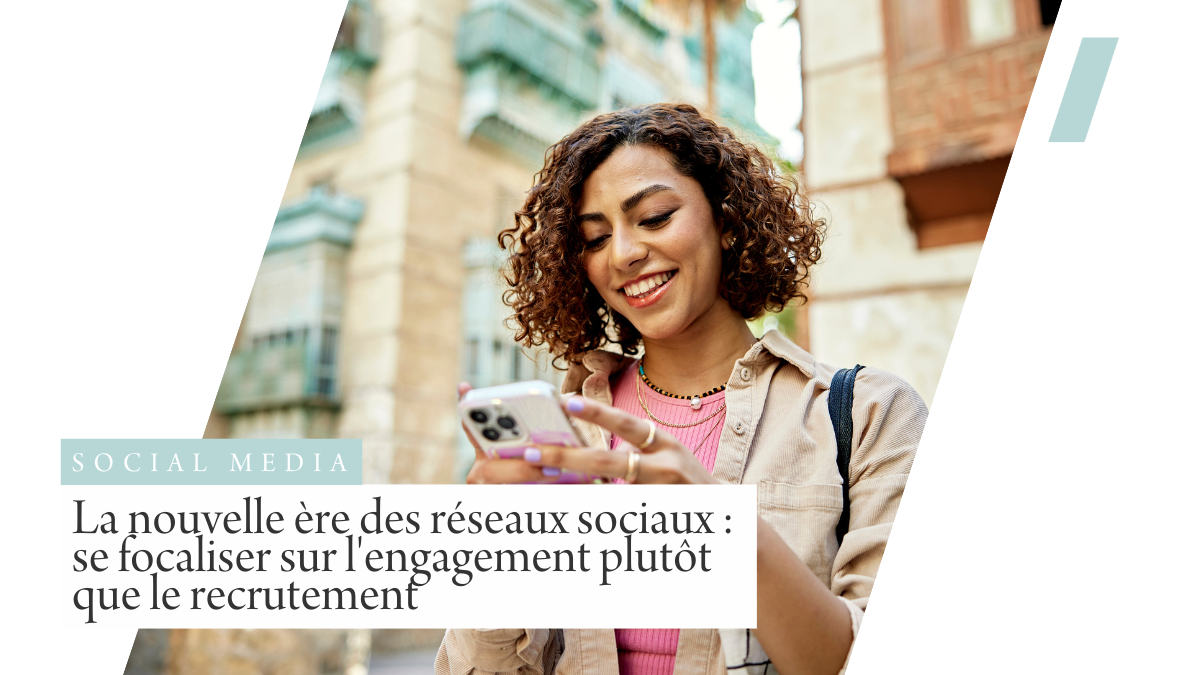Let’s face it, WhatsApp has been one of your best friends during this period of confinement, keeping you in touch with loved ones.
According to Statista, the WhatsApp messaging application was downloaded 379,000 times on Android smartphones in France during the week of March 26 to April 1.
These 2 months of confinement will have accelerated the growth of all social networks.
Its success in the private sphere is well established, but what about in the professional sphere, where more and more brands and media are using it to get closer to their users and customers?
What is WhatsApp?
Created in 2009 by two ex-Yahoo employees, WhatsApp now boasts over 2 billion users worldwide.
And with good reason!
This application lets you exchange text messages, voice messages, files (videos, photos, gifs, documents), create conversation groups, make phone calls… All for free, or almost, all you need is Internet access 😊
It has to be said that its takeover by Facebook in 2014 facilitated its explosion, as this enabled it to integrate more and more features similar to those of social networks.
Always looking to evolve, WhatsApp has recently developed a number of new features.
One aimed at reducing the spread of Fake News by limiting message transfer to 5 simultaneous sends only, and the other giving the possibility of making video calls with 8 people.
We can see that the latter development was mainly determined by the Covid-19 crisis, with the aim of competing directly with other video tools such as Zoom, House Party or Hang Out, and not staying on the sidelines.
As we’ll see in an upcoming article, the Covid-19 crisis has benefited social networking.
In fact, you may not have known it, but the instant messenger has a Business version specially dedicated to companies, also available as a free download.
This version enables brands and companies using the application to offer catalogs of their products and/or services, to interact easily with their customers using tools to automate, sort and respond quickly to messages, as well as to offer customer support and deliver important notifications to their customers.
Use of WhatsApp during confinement?
Many users have turned to WhatsApp to keep in touch during confinement, but it’s worth noting that many brands and companies have made this instant messaging a preferred communication channel.
This tool has been used in particular, but not exclusively, to combat misinformation by disseminating verified and sourced information to readers.
This is the case, for example, of Le Monde, which, in the midst of a lockdown, has set up a free news feed open to all.
To access Le Monde’s WhatsApp account from your smartphone, simply click on this link to become part of the group, then copy and paste this message into the new thread: ” Hello, I’d like to access Le Monde’s new WhatsApp service. ” Finally, save the phone number associated with the account in your address book.
Here’s the kind of message you’ll receive every day concerning a news item in the newspaper, and linking to the corresponding article on Le Monde’s website:
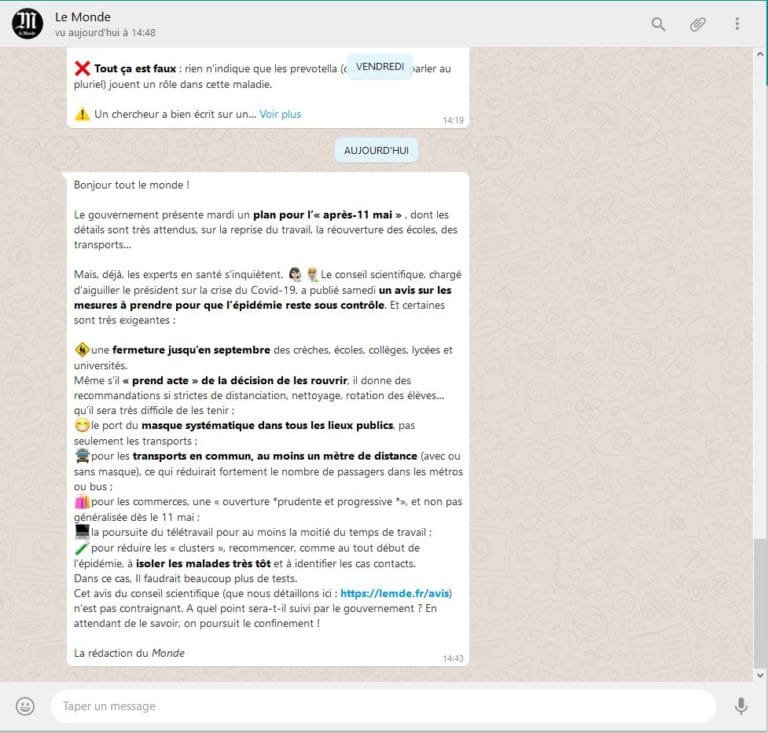
Another example is the French government’s campaign to inform citizens about the measures in place to combat the coronavirus. Here, the procedure is the same, except that you have to choose between 7 proposals and send the corresponding letter by message to access the chosen category.
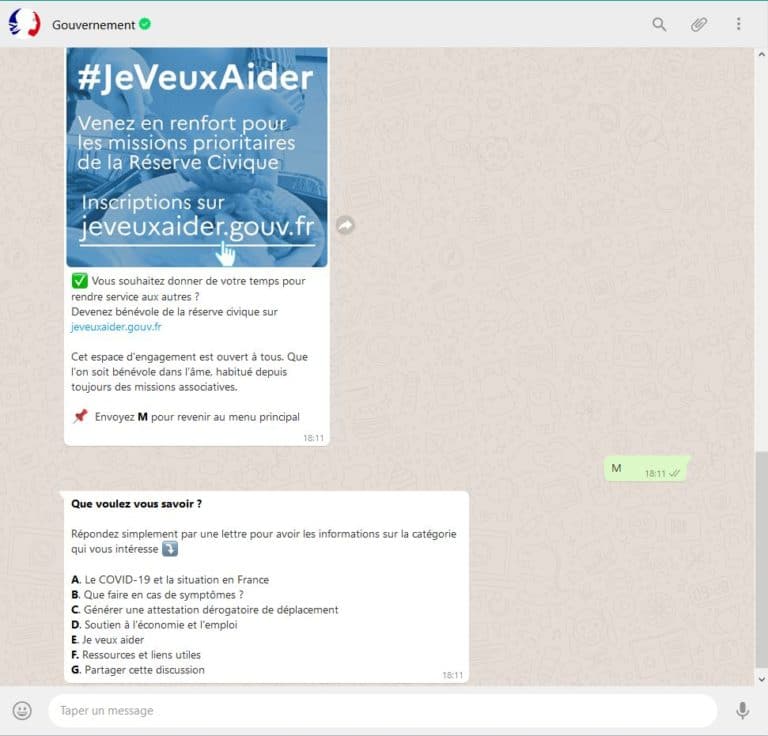
In Ireland, store chain Lidl, meanwhile, has launched an online chatbot via WhatsApp so that customers can avoid queues and find the quietest time to shop.
To do this, Irish customers can send a message to Lidl via the Facebook-owned messaging app, informing the chatbot of the day and time they intend to visit.
The chatbot will then inform them whether it’s generally a quiet, average or busy time to come.
In some countries, such as Brazil, fast-food players like KFC and Domino’s Pizza have set up a smart system to receive orders via WhatsApp, enabling customers to stay at home while making the purchase.
Finally, during this complicated period without access to our favorite bars, restaurants and terraces, the Bacardi rum brand has set up a “Numéro Verre” for cocktail lovers.
It’s a WhatsApp hotline that connects individuals who want to make good homemade cocktails and are eager for good advice, with professional bartenders.
All you have to do is add the number to your WhatsApp contacts, send the ingredients (with a kind word, it’s always a pleasure) and a bartender will get back to you with the recipe that goes with it 🍹
As well as being super original, this project aims to help bartenders get through this crisis: for every request for this glass number, Bacardi donates €1 to bartenders. An opportunity to enjoy (in moderation) good cocktails, while doing a good deed. 😊
Customer service via instant messaging: the future of after-sales support?
It’s vital for brands and companies to provide responsive, quality customer service, as this is of great importance to consumers.
For example, when we read negative comments on social networks, we notice, unfortunately, that it is often customer service that is called into question, and this can be a major asset in the decision-making process.
Who wants to buy a product or a trip knowing that, if there’s a problem, the company won’t be there to do its job?
Customer service can also be a source of frustration for consumers.
Who hasn’t spent endless minutes on hold calling an after-sales service?
Or sent a complaint by e-mail, only to receive a standardized response that doesn’t fully answer your query?
In addition, studies lead to the conclusion that consumers of all generations increasingly prefer to use chat via WhatsApp or Facebook Messenger to hotlines and e-mail support services.
What if you communicated differently with your customers?

As you can see, WhatsApp is a great tool for creating a close, personalized and authentic relationship with your customers and prospects, by communicating directly with them and putting aside the “cold” and “distant” aspect that traditional customer service can sometimes have.
Confinement has prompted many brands and companies to integrate WhatsApp into their internal and external communication tools.
Many have encouraged consumers to contact them via WhatsApp only, as their employees don’t have access to professional mailboxes and phones.
Will they keep these new habits?
Many chabots are now conducted via WhatsApp.
This is the case, for example, of airline Vueling, which has clearly understood the importance of such a tool, and now offers travelers a conversational virtual agent via the mobile messaging application.
Thanks to this new virtual assistant, users can check in for their flight online and get answers to the most frequently asked questions.
Although currently available in English, the bot is also capable of providing a Spanish-language version of the same conversation, at the request of the mobile user.
The aim of this device is to streamline communication with passengers and improve the customer experience.
Beyond after-sales service, WhatsApp is rapidly becoming a mobile showcase.
Thanks to WhatsApp Business, brands and companies using the application can now offer catalogs of their products and/or services to users, facilitating interaction between companies and their customers.
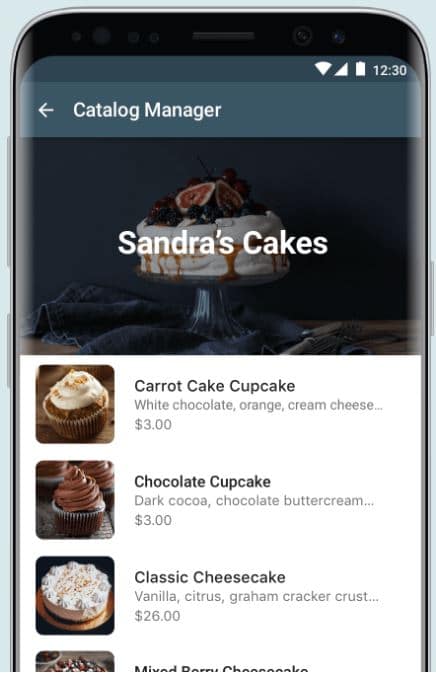
The Facebook group is going even further, and has just announced the launch of Facebook Shops, a more comprehensive solution aimed at “small merchants”.
Thanks to Facebook Shops, each merchant will be able to easily create a store, which will be accessible via Facebook pages or Instagram profiles, as well as stories and ads.
For any queries, delivery tracking or requests for information, it will be possible to contact the seller directly via WhatsApp, Messenger or Instagram Direct.
It’s worth noting that WhatsApp is already part of an SMO (Social Media Optimization) strategy via Facebook’s management tool, Business Manager.
For example, when you sponsor your posts, you can include a “contact from Whatsapp” Call To Action.
This proves that this action is as valuable as a booking for tourism providers, and that it’s on the increase.
What about sharing content?
Unlike its big brothers Facebook and Instagram, Whatsapp is algorithm-free.
All you need is your audience’s phone numbers to freely and exclusively promote content such as promotional offers, discount codes, practical information and so on.
Be careful, however, to moderate the content you send, to avoid appearing as a spammer, as the application is primarily designed for personal use.
With little competition yet in this sector, the value perceived by your audience can be enormous compared with a publication on Facebook, Twitter or Instagram.
It’s the ideal app for addressing micro-audiences and doing one-to-one marketing.
The ease of sharing on WhatsApp is also not to be underestimated: once you’ve received an offer, you can transfer it to your entire address book in less than 10 seconds.
To achieve this, don’t skimp on the quality of your content: the more informative, educational or funny it is perceived to be, the more your audience will be tempted to share it via their own mailing lists.
The snowball effect can quickly become exponential!
In conclusion, we can see that WhatsApp now occupies a prominent place among social networks, and that containment has enabled it to develop accordingly.
We can only advise you to adopt it as part of your after-sales service tools, as it offers the advantage of being able to communicate directly with your customers and establish an unfiltered, special relationship with them.
And as we all know only too well, a happy customer is a loyal customer who won’t hesitate to promote your company or your services to others.
In view of all these factors, it seems essential for tourism professionals to make this shift quickly, if they haven’t already done so.
Email still works, but in an era when customers are increasingly mobile and looking for more experience in terms of innovation and personalization, instant messaging, and in particular WhatsApp, seems to represent an opportunity that absolutely must be seized.
A final element that may tip the balance, Facebook has announced that it will soon be possible to share advertising on WhatsApp, although the group already uses the data generated on WhatsApp to retarget advertising on Facebook.
So what are you waiting for? 😊
Want to find out more about social networking communication trends for 2020?
Click here
